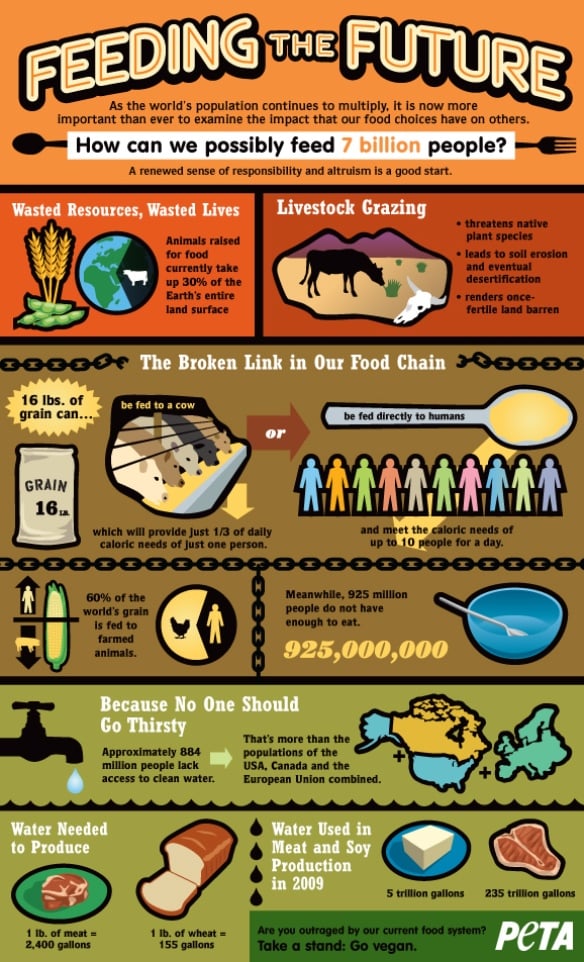According to the Environmental Working Group EWG the production processing and distribution of meat requires huge outlays of. Additionally it is important to consider that In 2013 more than 482 100 workers were employed in the meat and poultry packing and processing industries 10.
 Meat Industry Effects On Environment Google Search Health Processed Meat Health Conditions
Meat Industry Effects On Environment Google Search Health Processed Meat Health Conditions
As concerns over the huge impact on the environment human health and animal welfare grow what future is there for the meat industry asks Bibi van der Zee.

Why is meat bad for the environment. Some point out that the ways in which cattle are raised and consumed are unethical. In the worst case meat from ruminants like beef and lamb this can be 10100 times greater. Meat and the Environment Raising animals for food requires massive amounts of land food energy and water and causes immense animal suffering.
The heavy impact on the environment of meat production was known but the research shows a new scale and scope of damage particularly for beef. The answer is a combination of land usage and greenhouse gas emissions. The truth is that eating meat is generally considered bad for the environment because its production involves huge amounts of pesticides fertilizer fuel and water and its distribution releases greenhouse gases into the air.
A new study suggests that the production of beef is around 10 times more damaging to the environment than any other form of livestock. This land would quickly degrade forcing ranchers to. Scientists measured the environment.
The Effects of Meat Production on the Land Grazing land is often had by means of deforestation and has pushed a number of species to the brink of extinction. Using plant products to feed livestock requires large amounts of land use and leads to deforestation. But why is eating meat bad for the environment.
Even livestock raised using factory farming techniques create the same strain on the environment due to the massive quantity of grains necessary for animal feed 1. The use of grain soy and corn as feed is much less efficient than if they were to be consumed directly by humans. To truly assess how environmentally friendly meat is we also need to factor in the impact on land water and biodiversity.
In addition to that animal agriculture is responsible for between 15 and 20 of the total greenhouse gas emissions globally. I can see big advantages both environmental and ethical in reducing the production and consumption of grain-fed meat be it chicken pork or beef. It is hard to deny the negative environmental effects that meat consumption has had on the world.
All meats have a higher climate land and water footprint than the same quantity of plant-based foods. Despite the scientific evidence its not realistic to ask everyone to become a committed vegan or vegetarian. Clearly there are significant emissions associated with meat production and it may well be that in general grass-fed beef has slightly higher direct emissions than grain-fed beef.
In fact it has such a devastating effect on all aspects of our environment that the Union of Concerned Scientists lists meat-eating as one of the biggest environmental hazards facing the Earth. Our meat consumption habits take a serious toll on the environment. Others argue that eating red meat is terrible for the environment.
Globally animal agriculture is responsible for more greenhouse gases than all the worlds transportation systems combined. The popular red meat requires 28 times more land to. The way animals are farmed and the impact those methods have on the environment is just as important as the carbon footprint of the meat itself.
Eating meat has dire consequences for the planet says report. About 90 of all deforestation can be traced back to the meat industry. There is a huge array of factors involved in the environmental impacts of eating meat.
To feed a growing global population and curtail climate change scientists say. They cut down big tracts of the rainforest and set fire to the trees in an environmentally destructive process known as slashing and burning. On the other hand big meat corporations and its employees are making a significant economic profit.
Recently meat substitutes have emerged as a.